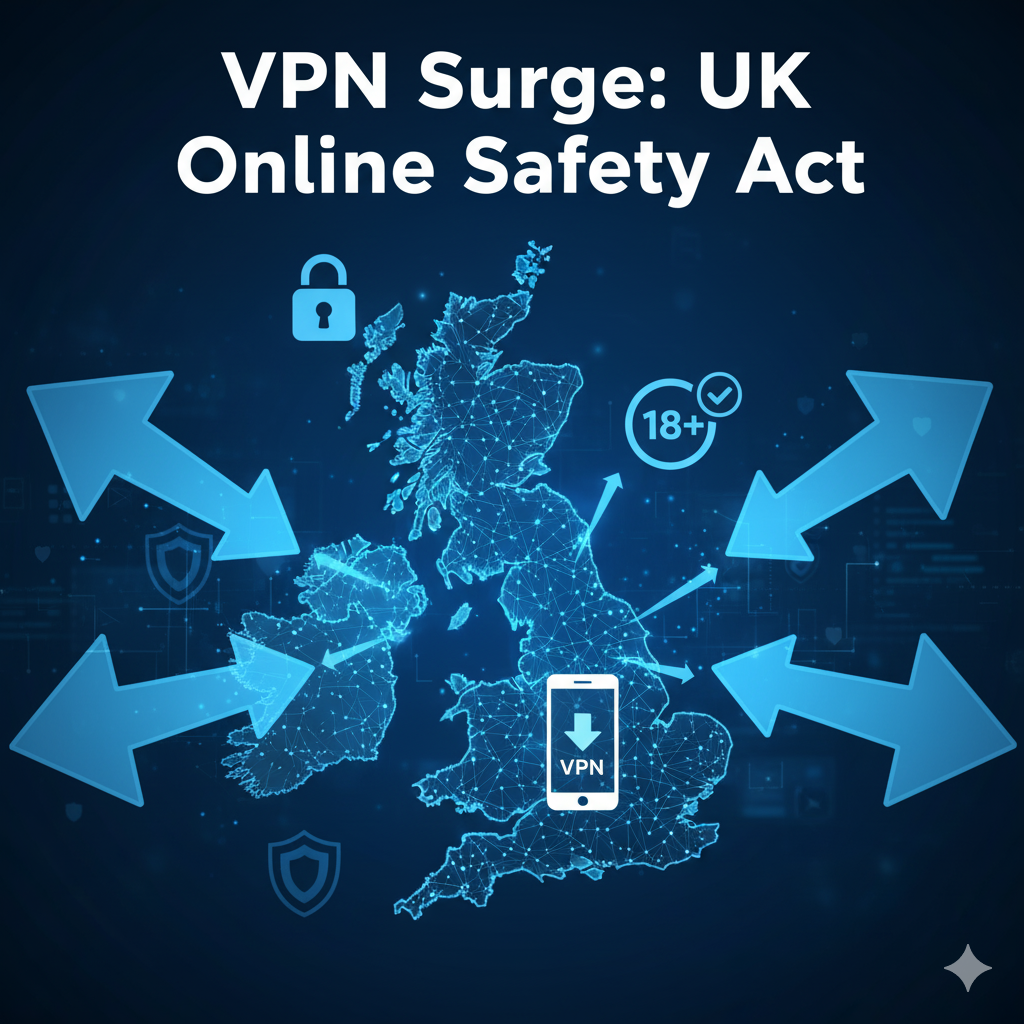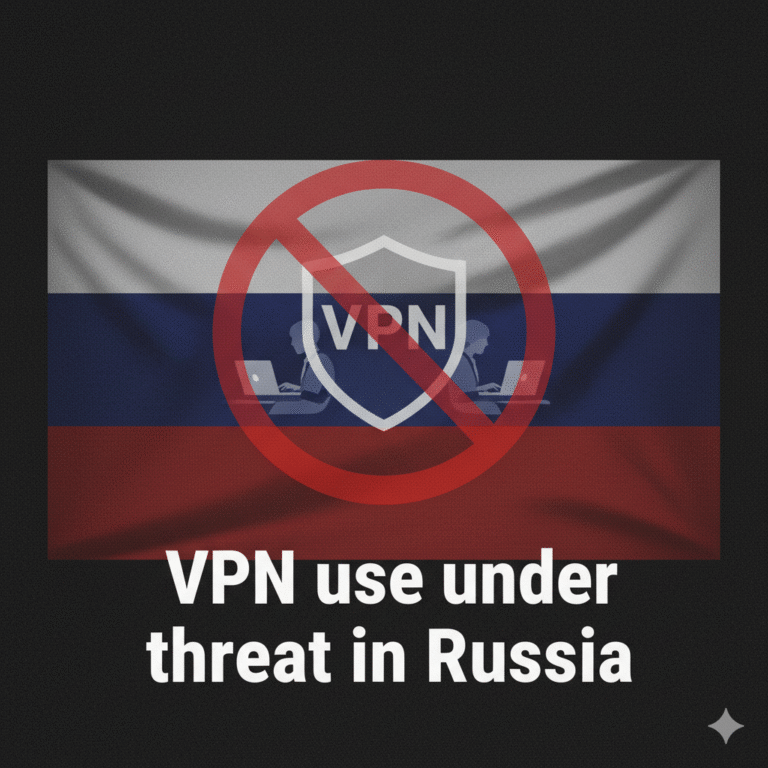When the Online Safety Act 2023 went live in the UK on 25 July 2025, requiring age‑verification checks on a broad set of online platforms, the policy ripple was immediate(UK Online Safety Act). The result? A dramatic spike in interest for virtual private networks (VPNs) in the United Kingdom — highlighting the tension between regulating online harms and preserving user anonymity. This surge in VPN adoption in response to regulation underscores how digital policy, freedom and privacy now intersect. In this context the focus is on VPN regulation UK, or more broadly the consequence of regulatory moves on VPN usage.
What the data shows
According to multiple trusted sources:
Within hours of enforcement, the Swiss‑based provider Proton VPN reported a sign‑ups increase of 1,400% from UK users.
Research from a VPN‑monitoring team (Top10VPN) found UK VPN traffic jumped 1,327% on 25 July compared to the prior four‑week average, and by July 26 it was up 1,712%.
Google search interest for “VPN” in the UK spiked roughly 300% or more in the immediate aftermath.
Free VPN apps dominated the top rankings on UK App Store charts as users rushed to download tools that mask location/access.
Taken together, these trends make plain that regulators’ age‑verification rules created tangible shifts in behaviour — the keyword UK VPN surge is now firmly anchored in recent digital policy news.
Why the surge happened
Several factors explain why this legislation triggered an uptick in VPN downloads:
Age verification requirements: The Online Safety Act mandates that platforms hosting “adult content” or those likely accessed by minors must implement “highly effective” age checks (e.g., government ID, biometric face scan, or credit/debit verification) when accessed by UK users.
Perceived invasion of privacy: Many users balked at providing sensitive personal data simply to access legal content. VPNs offer a way to bypass location checks and thereby avoid such verification prompts. For example, VPNs can route traffic via non‑UK servers to avoid UK IP‑based enforcement.
Messaging and media coverage: Prominent press coverage highlighted the VPN surge in UK app‑stores, signalling to many users that this was a viable “work‑around.” This kind of visibility likely amplified the trend.
Regulatory & policy implications
The surge in VPN usage raises important questions for regulators, platforms and users:
Effectiveness of age‑verification rules: If many users simply circumvent via VPNs, the intended protections may be undermined. The regulator Ofcom has warned that promoting VPN use to bypass age‑checks is illegal.
Privacy risk trade‑offs: While age verification is aimed at child protection, critics argue it creates new risks — data may be stored, reused or breached. The fact that users are pivoting to VPNs underlines the perceived privacy cost of the verification systems. (
VPN regulation and future oversight: The legislation may spur discussions about how VPNs fit into regulatory landscapes. Should there be rules requiring VPN providers to comply with age‑checks or location‑based restrictions? The UK surge is a real‑world stress‑test.
Digital rights & free speech concerns: Some advocacy groups warn that the OTP (online safety) framework could broaden into controlling access to legitimate content or drive users toward less‑regulated proxies and offshore services.
Comparisons & context
Looking globally, the UK is not alone in seeing a policy‑driven jump in VPN usage:
France and Turkey have previously experienced VPN spikes after similar regulatory measures around adult content or streaming blocks. For example, in France a prior age‑verification law led to an 874% increase in VPN demand.
Unlike nations that outright ban VPNs, the UK is not banning them — but the legislation creates conditions where many users feel compelled to use them. This “indirect regulation” model is more subtle but not necessarily less impactful.
What users & platforms should note
For users: If using a VPN, ensure you select a reputable provider with clear logging policies and secure infrastructure. Using free or unknown VPNs can introduce additional risk (privacy, malware).
For platforms: Services subject to the Online Safety Act should monitor VPN traffic as a possible indicator of circumvention. Age‑verification systems may need to adapt to higher traffic, proxy detection and alternative flows.
For regulators: The spike suggests implementation design matters; regulation must anticipate behavioural responses. If tools like VPNs can easily bypass checks, the policy risk‑reward calculus shifts.
For VPN providers: The UK market is being shaped by regulatory change. Providers may see demand spikes—but must navigate trust, privacy expectations, and possibly regulatory scrutiny themselves.
Learn more than NordVPN introduces post‑quantum encryption feature
Conclusion
The UK’s Online Safety Act stands as a clear example of how online regulation can trigger real‑time shifts in user behaviour—particularly with virtual private networks. The surge in VPN downloads and usage in the UK highlights that regulation doesn’t operate in a vacuum: users find workarounds, and every policy move ripples into tech behaviour.
For the keyword VPN regulation UK, the story is evolving: regulation aimed at protecting children online intersects with tools built for private access and anonymity. As the tension between safety, privacy and access plays out in the UK and beyond, stakeholders—users, providers and policymakers—are watching a critical digital experiment unfold.



